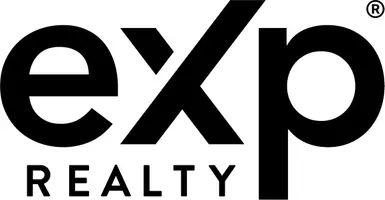What Should You Disclose to Buyers on Your Property
What Should You Disclose to Buyers on Your Property
Hey, it’s me, Kati! Selling a home can be an exciting yet complex endeavor, with many responsibilities falling on the shoulders of the homeowner-turned-seller. One crucial aspect of this process is disclosing information about your property to potential buyers. While you might think that only major issues should be disclosed, it’s essential to consider a broader perspective. Let me illustrate this point with a personal experience that highlights the importance of disclosure.
Years ago, I found myself facing a lawsuit as a real estate agent, a situation I hadn’t anticipated. The reason behind the lawsuit was a seemingly straightforward matter. I had taken a listing for a house that had experienced a leak in the attic, originating from a furnace located there. The leak had caused damage to the ceiling and wall below.
The sellers were fully aware of this issue and had filed an insurance claim to address it. They had the necessary repairs done, including replacing the furnace. When it came time to fill out the property disclosure form, I knew about the previous leak, but since it had been fixed, I didn’t believe it needed to be disclosed. After all, this was in line with the general principle that you don’t need to disclose something that has been properly repaired.
However, the situation took an unexpected turn. During the home inspection, the buyers identified that the roof needed replacement and negotiated a credit for it. They acknowledged the roof issue, and I thought the matter was resolved. However, the following year, the buyers faced problems with ice dams, a common issue in colder climates.
Ice dams occur when gutters get clogged with leaves and snowmelt cannot flow freely off the roof. The water ends up seeping into the house, causing damage. In this case, the buyers had not used the credit they received for roof replacement, and they hadn’t cleaned their gutters, leading to ice dams forming around the house.
Surprisingly, the buyers decided to sue me, alleging that I had hidden a defect. This was despite the fact that the attic furnace leak had no connection to the ice dam issue. The lawsuit dragged on for two years, causing significant stress and legal expenses.
Now, you might be wondering, what does this story have to do with disclosing property issues? The point I’m trying to make is that, sometimes, buyers may sue sellers or their agents for issues they believe were not properly disclosed, even if those issues have been resolved. So, when you’re filling out your property disclosure, consider the possibility of future disputes.
While it may not have been necessary for my sellers to disclose the furnace leak repair, it’s essential to think carefully about what you should disclose. If there’s a history of significant issues, even if they’ve been fixed, it might be wise to disclose them. For example, if there were recent foundation problems or basement flooding that has been addressed, it’s better to mention them in the disclosure.
Furthermore, it’s crucial to be honest and transparent when completing the property disclosure. Even if there are issues with the property, remember that a house can still be sold with full disclosure. By sharing this information upfront, you establish trust with potential buyers. They can make informed decisions and adjust their offers accordingly.
In conclusion, the process of selling a home can be filled with unexpected twists and turns, including the possibility of legal disputes. To protect yourself and ensure a smooth transaction, err on the side of caution when disclosing property issues. Be open, transparent, and honest in your property disclosure to foster trust with buyers. It’s always better to provide too much information than to risk facing legal challenges down the road.
Remember, my story serves as a cautionary tale, highlighting the importance of disclosure in real estate transactions. By following these principles, you can navigate the selling process with confidence and integrity.
Recent Posts











